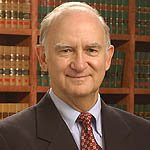42 3.5***
Everyone should remember the name Jackie Robinson. He became more than a
baseball player, he became a legend, and a hero to the oppressed. Almost 70
years later his influence is still felt today. You ask anyone who truly follows
baseball and they know the name, the number (42), and what it meant to the
sport.
Luckily this film doesn't try to do too much by trying to tell
the life story of Jackie Robinson. Iinstead it focuses on Robinson's days in
the Negro League in 1945 thru his first season with the Brooklyn Dodgers in
1947. Even with America coming off its victory against Fascism in World War II,
racism was still prominent and it was especially true with the racist attitudes
against African-Americans. At a time when society in America was l
segregated based on race, Jackie Robinson became the first African-American Major
League Baseball player. He broke through the color barrier that had kept blacks
out of the Major Leagues. Despite his amazing skills as a ballplayer, Robinson
faced huge adversity dealing with the racist prejudice from the public, the
fans, and fellow ballplayers. He wasn't just the first black major league
baseball player, his greatness on the field also had a huge impact on the
game and America's attitude towards African-Americans. He became an icon in the
civil rights movement in America, and ended racial segregation in America's
greatest past time. This is why we remember his name, and his number.
Little-known actor Chadwick Boseman brings all the necessary
elements to the role of Robinson. He looks like a ballplayer and is totally
convincing in the baseball scenes. He also effectively conveys the
emotional turmoil inside a man forced to endure racially charged taunts and
other various indignities due to the color of his skin. He shows the grace and
class with which Robinson handled the onslaught. It took true courage to not
fight back. It showed true character to turn the other cheek.
Harrison Ford plays Branch Rickey, the Brooklyn Dodgers'
General Manager who made the bold decision to bring an African American into
the Major Leagues in 1947. Ford is tremendous. It's a rare treat to watch one
of Hollywood's most famous leading men disappear into a character. At first, it
seems odd to see Ford playing an old curmudgeon. But then one comes to the
astonishing realization that Ford (at age 70) is actually a few years older
than Rickey was when he brought Robinson to Brooklyn. In the movie, Rickey
professes that his motives are financial – the Dodgers have lots of African
American fans that would pay to see Robinson play. He claims the only color he
cares about is green. Ford's commanding and ultimately moving portrayal,
however, hints at more decent and high-minded desires driving Rickey's
decision. He would seem to be a sure bet for a Best Supporting Actor
Oscar nomination..
The baseball
action has a more realistic look and feel than most baseball films. Computer
graphics are also effectively used to recreate long-since-demolished ballparks
like Ebbets Field and the Polo Grounds in exact detail.
The filmmakers
present a movie that most families will still find acceptable for young fans
that don't know Robinson's story or his significance in American history. You
hear lots of n-words, but each character that uses them is sternly
chastised on screen. (Aside from those scattered slurs, there isn't much that
most parents would find objectionable.)
Clark
